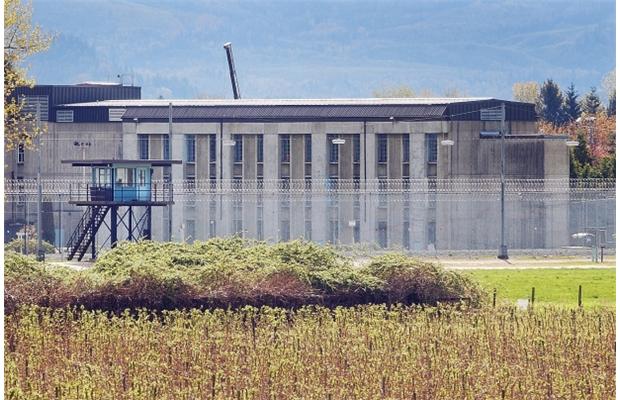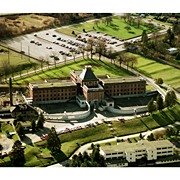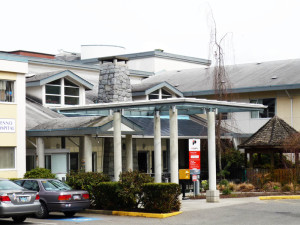When I graduated from SFU, I didn’t immediately look for work where I could apply what I had learned. During my 4 years at the university, I had put in quite a lot of time with Dad in his landscaping business. My role had mostly been to operate a John Deere front end loader and deliver top soil, sand, and gravel with a dump truck. Knowing Dad had more work than he could look after alone, I decided to stay with him temporarily.
I arranged a meeting with Doug McGregor to give him a copy of the paper I had written, based on my research at Matsqui Institution. I told him about M2/W2 and asked if he would consider having the organization set up a program at Matsqui.
“Do you think this is the answer to problems with inmate rehabilitation?” he asked. I wondered later if this had been his way of ascertaining how naïve I was in regard to prison issues.
“We don’t claim it will solve all problems,” I replied. “I do believe though that if an inmate has a friend in the community, he won’t feel as isolated from mainstream society. An M/2 Sponsor would commit to visit him once every two weeks. He and his family and friends could be a positive influence in his life. When the inmate is paroled, the sponsor might be able to assist him in finding employment.”
Although he didn’t say anything, I sensed that Doug was listening intently. “In cases where a solid relationship is developed,” I continued, “ the man doing time has someone of good character in his life. This means he doesn’t have to feel as dependent on his past criminal associations. Some men recognize that they need to sever those connections completely, but that certainly doesn’t happen in every case.”
Doug asked a few more questions and then agreed to meet with Ray Coles, the executive director of M2/W2. Several weeks later Ray asked if I would consider coordinating the program at Matsqui in a volunteer capacity. I had derived considerable satisfaction from doing the research at the institution, and although there would be no remuneration, I felt this was a good move for me. It would enable me to gain further experience in corrections. My interest was in the realm of rehabilitation, not in becoming part of the bureaucracy and being enmeshed in its often stifling web.
A few days later I requested a meeting with interested inmates. The staff liaison, who coordinated the activities of the various groups coming into the institution, recognized the benefit of having inmates interact with citizens from the community. She advertised the program among the inmate population and invited interested individuals to attend an informational meeting with me. This meeting took place in one of the institutions’ classrooms. At the time inmates were able to upgrade to a high school level education, something they frequently lacked. Several university courses were also offered.
The meeting attracted just over a dozen men. Some were simply curious or looking for a break from prison tedium. Others desperately hoped for something that would halt the downward trend of their lives. The men straggled in, usually one at a time, all clad in the drab grey prison uniforms. As though hoping not to be noticed, each cautiously took a seat as close to the rear of the room as possible. Prison life had tutored them in the art of distrust.
They observed me furtively. Only two or three made even minimal eye contact. These were hardened, discontented, discouraged men who had known mostly failure. Sexual and physical abuse was a common thread in their history. Feeling alone, unappreciated and unloved, they desperately needed a miracle. Of course, they didn’t have the capacity to believe in miracles.
For these desolate men heroin, cocaine and alcohol were the only means of escaping from the sorrow and rage that simmered deep within. Even for the younger ones, the time had passed when they would willingly make the effort to change and grow. Looking into these disconsolate faces and sensing their lack of ability to believe, I felt a powerful urge to bring into their lives men who might be able to help them accept that good things were still possible.
Several days later, I received seven applications for a sponsor. Among them were three I particularly recall.
One was Steve, a large sombre man of about 55 who had two times killed a prostitute in a drunken rage. He was doing life. He’d need help if he was to get out of prison before he was too old to care. The damage done to his psyche in earlier years was immense. In the time I knew him, I never saw him smile.
Also in attendance at the meeting was Roy, a balding, barrel chested stocky man of about 40. He had come early to secure a seat at the very back of the room. He sat through the entire meeting with his arms folded across his chest and his face radiating distrust. Everything about him suggested extreme skepticism, lack of hope and a strong measure of defiance. I doubted he’d want anything to do with our program but I instinctively felt that if he did, he would be difficult.
Al, doing significant time for an armed robbery in which he had shot a policeman in the leg, also applied for a sponsor. His most recent contact with his parents had been a 45 minute visit six years ago at Stony Mountain Prison in Manitoba. Although he was only 36, he already thought of himself as a hard core con. He spoke out of the side of his mouth and his attitude and values were those of a man who has spent many years behind prison bars.
Looking through the applications, I was mystified when I saw the name of Roy, who had placed an impenetrable wall of reserve and skepticism between himself and me. He did prove to be a handful, as I guessed, but not in the way I had expected. In fairness to him, each of the others also proved to be extremely difficult. In spite of the challenges though, several of the relationships that developed from this first meeting would last a decade or more. As in every other prison, miracles at Matsqui Institution were scarce, but at times we got close.





